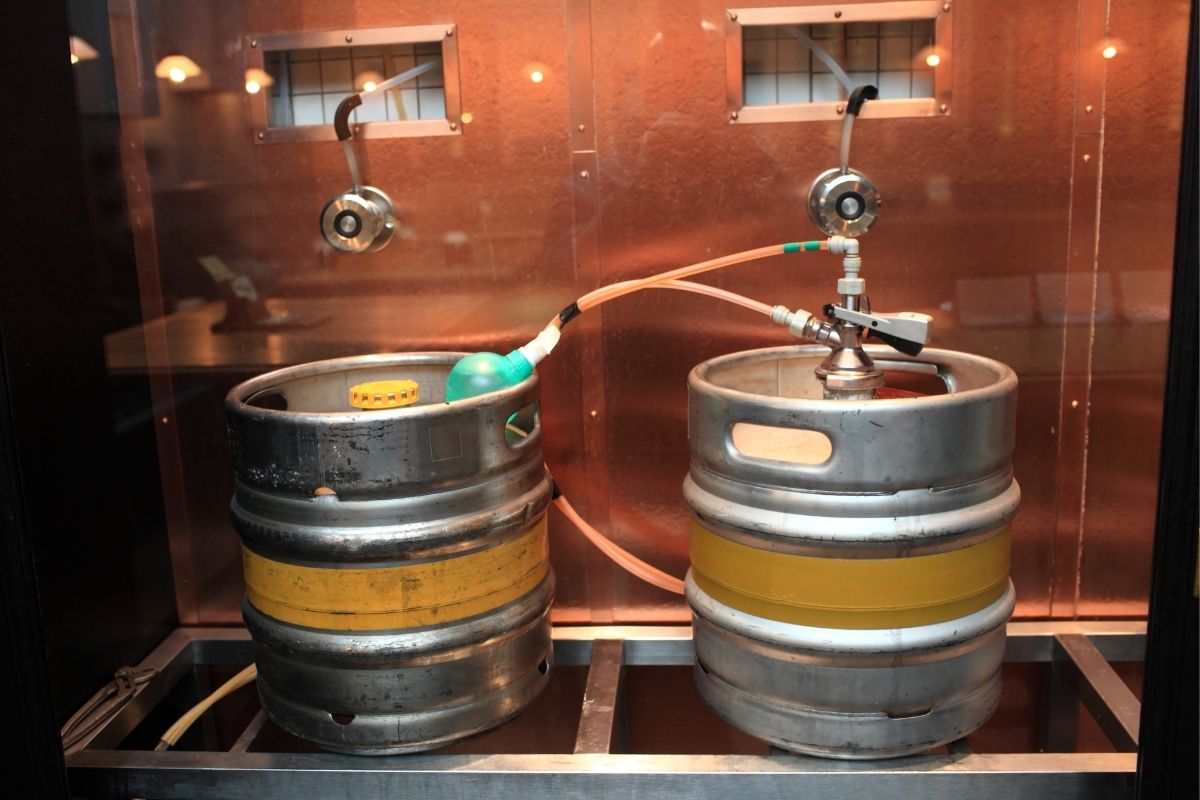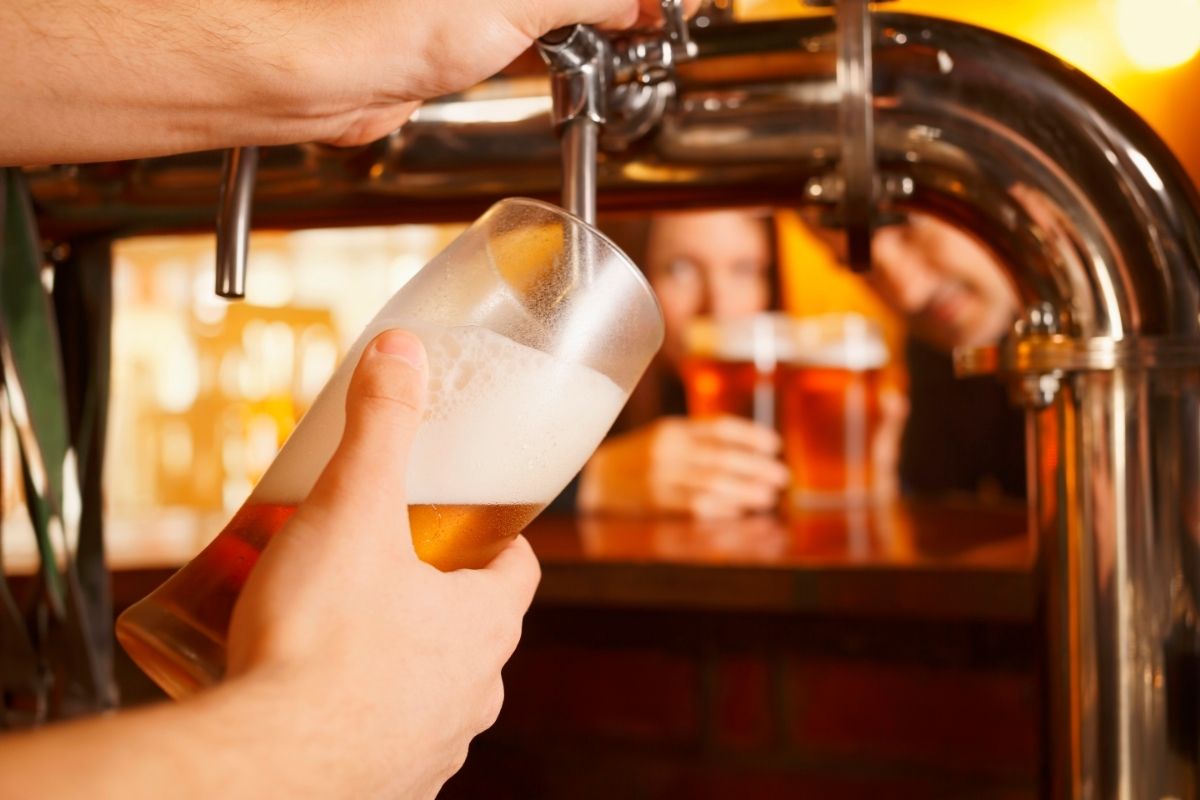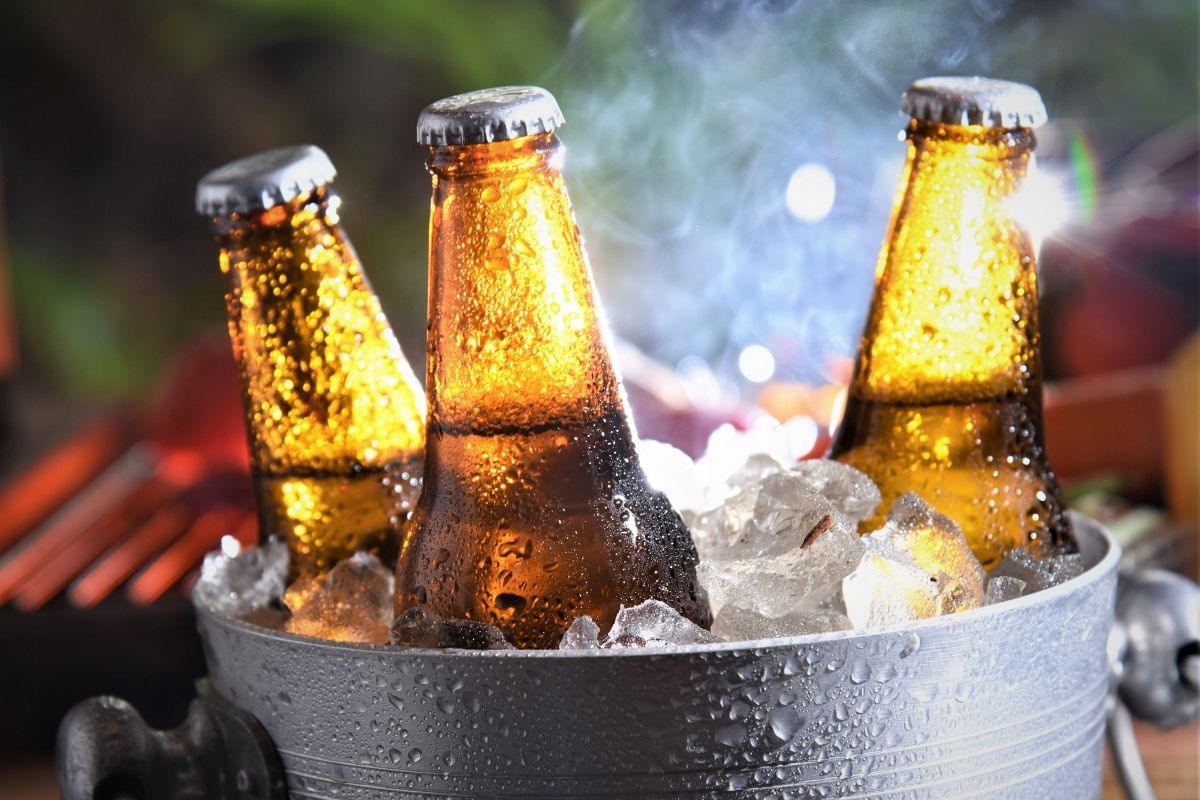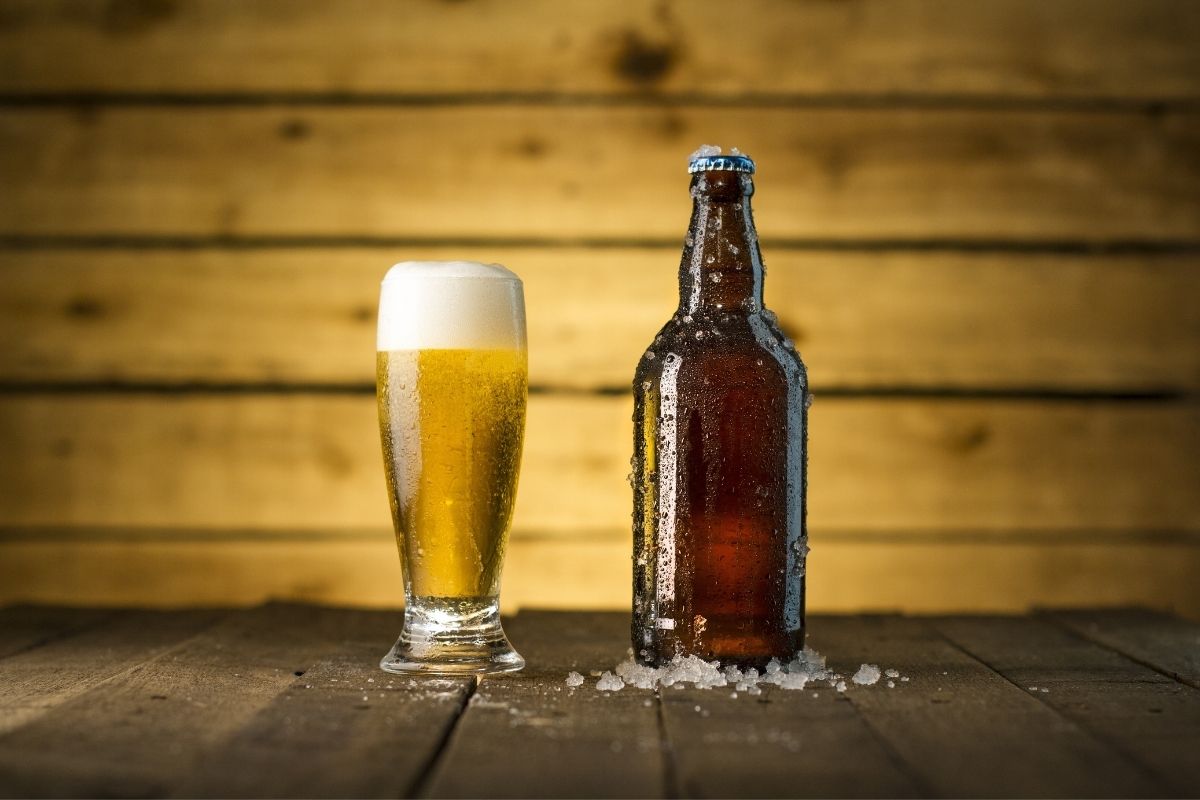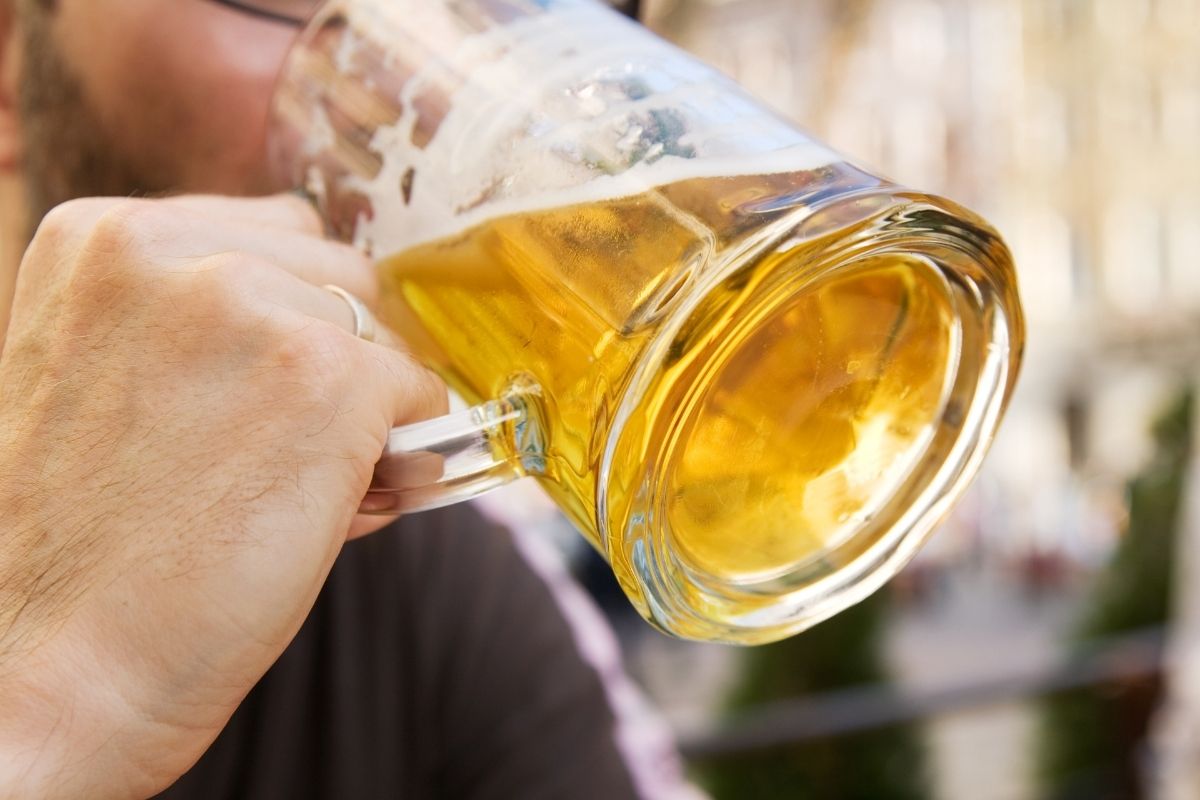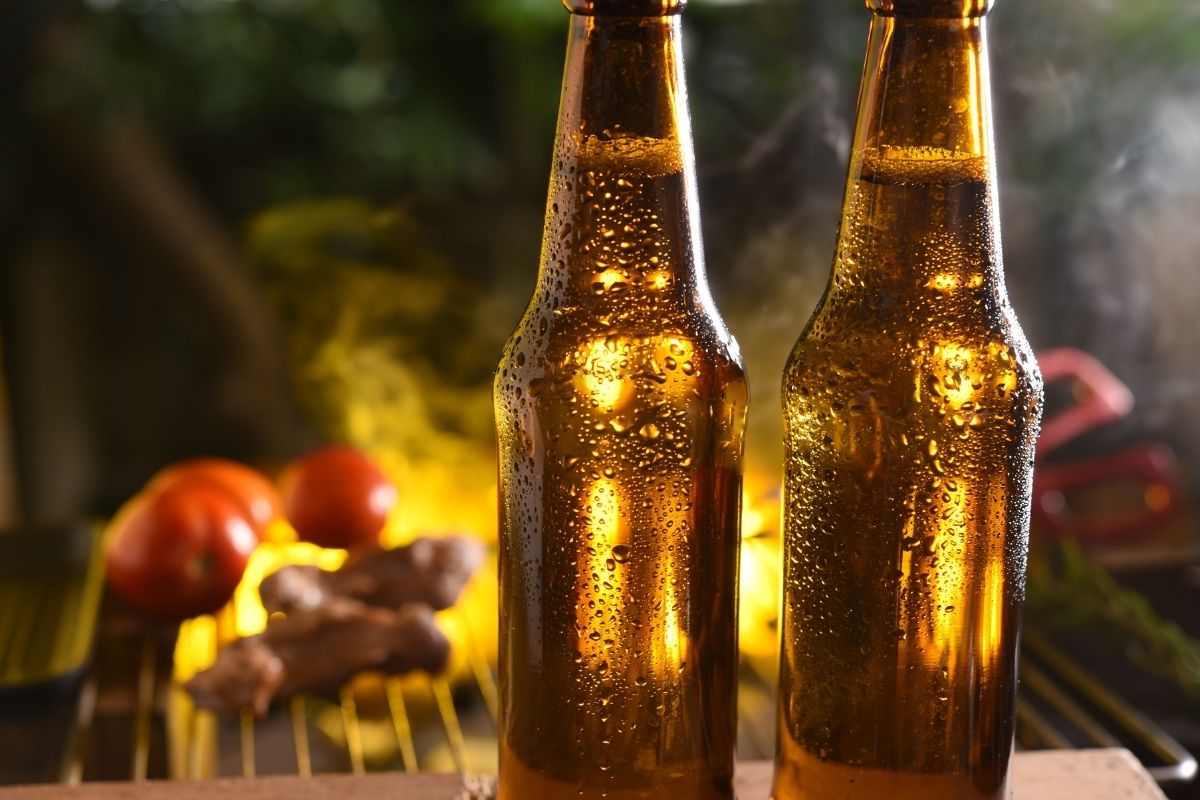You may have come across the dilemma of finding a forgotten beer in the freezer, only to discover it has exploded or is completely frozen. To avoid this mishap, it is necessary to understand at what temperature beer freezes. In this blog post, we will explore the science behind beer freezing, the factors that influence its freezing point, and provide you with valuable tips to prevent your favorite brew from turning into an icy mess. So, before you accidentally create a beer slushie in your freezer, let’s research into the ideal storage conditions for your beloved brews.
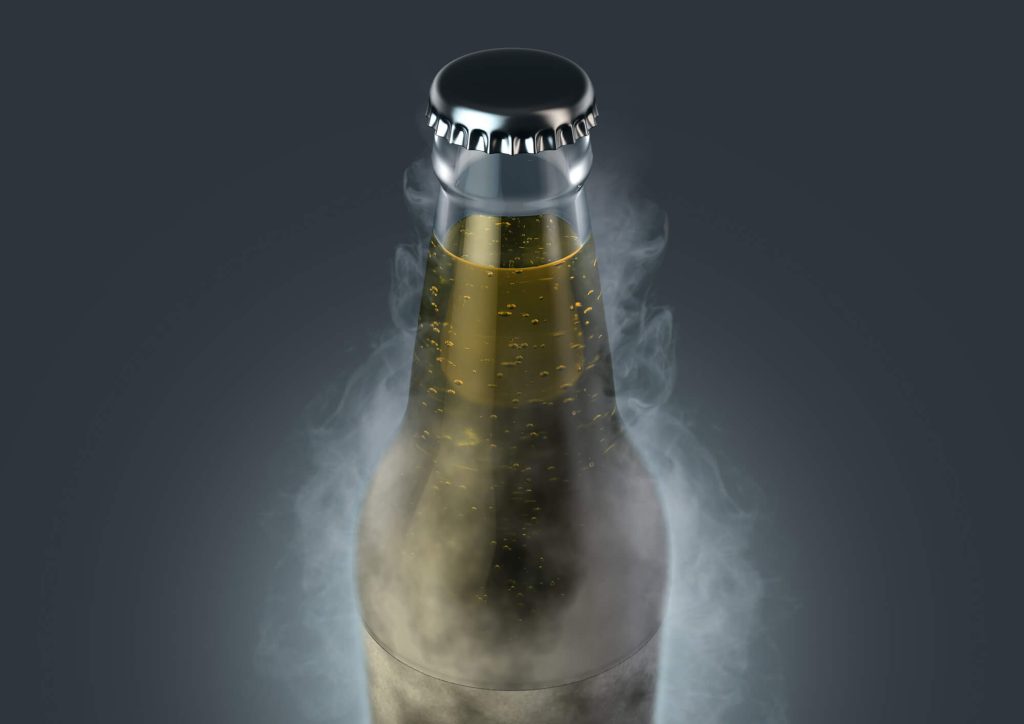
Key Takeaways:
- Beer freezes at around -2°C to -3°C (28°F to 26.6°F).
- The exact freezing point can vary depending on the alcohol content and ingredients in the beer.
- Higher alcohol content beers tend to have a lower freezing point.
- It is not recommended to freeze beer as it can alter the taste and texture when thawed.
- When beer freezes, the water content turns into ice crystals which can impact the quality of the beer.
The Science of Freezing
Understanding the Freezing Point of Water
Freezing is a phase transition where a liquid turns into a solid when its temperature is lowered below its freezing point. For pure water, this point is 0 degrees Celsius or 32 degrees Fahrenheit. At this temperature, the kinetic energy of the water molecules decreases, causing them to form a highly ordered crystalline structure, resulting in ice formation.
The Role of Alcohol in Freezing Temperatures
The addition of alcohol to water or other beverages affects their freezing point. Alcohol has a lower freezing point than water, so when mixed together, the overall freezing point of the solution decreases. This is why alcoholic beverages such as beer, wine, or spirits have lower freezing points compared to water.
| Substance | Freezing Point |
| Water | 0°C or 32°F |
| Alcohol | -114°C or -173°F |
Point. To calculate the freezing point of a mixture of alcohol and water, one can use the freezing point depression formula, which takes into account the amount and type of alcohol present in the solution. This is crucial in the production of alcoholic beverages, as it helps determine their consistency and taste when chilled.
Variables Influencing Beer Freezing
Alcohol Content
One crucial variable that influences the freezing point of beer is its alcohol content. The higher the alcohol content in the beer, the lower its freezing point. This is because alcohol has a lower freezing point than water, causing beers with high alcohol content to require much colder temperatures to freeze.
Other Ingredients and Their Effects
One should also consider the impact of other ingredients in beer on its freezing point. Ingredients such as sugars, acids, proteins, and hop compounds can all affect the freezing point of beer. Sugars and proteins tend to lower the freezing point, while acids and hops can have the opposite effect, raising the freezing point of the beer. The combination and concentration of these various ingredients in a beer will determine its overall freezing characteristics.
Understanding the role of alcohol content and other ingredients in beer is crucial when considering the freezing point of this beloved beverage. By recognizing how these variables interact, one can better predict at what temperature a particular beer will freeze and how different types of beer may respond to freezing conditions. With this knowledge, beer enthusiasts can ensure their favorite brews are enjoyed at their best quality.
Practical Concerns and Tips
Many beer enthusiasts may wonder at what temperature beer freezes. While it typically freezes at around 28 degrees Fahrenheit, the exact freezing point can vary depending on the alcohol content and other factors present in the beer.
- Store beer in a consistently cold environment to minimize the risk of freezing.
- Avoid storing beer in the freezer for extended periods to prevent quality deterioration.
- Consider investing in a temperature-controlled beer fridge to ensure ideal storage conditions.
Storage Advice for Beer
On the practical side, it’s important to store your beer in a cool, dark place to maintain its quality. Avoid fluctuations in temperature that can lead to freezing or spoilage. Keep your beer bottles upright to prevent sediment disturbance and ensure proper sealing to avoid oxidation.
Effects of Freezing on Beer Quality
Advice for preserving the quality of your beer includes preventing repeated freezing and thawing, as this can lead to flavor changes and potential spoilage. Maintain a stable storage environment to minimize the risk of temperature fluctuations affecting the beer’s taste and aroma.
Industry Perspectives
Brewing Industry Standards for Beer Storage
On the topic of beer storage, the brewing industry follows strict standards to ensure the quality and integrity of their products. Brewers pay careful attention to the temperature at which beer is stored, as fluctuations can affect the taste and aroma of the final product. The ideal storage temperature for most beers falls between 45-55°F, although this can vary slightly depending on the type of beer.
Experiences and Recommendations from Brewers
Standards set by experienced brewers emphasize the importance of maintaining consistent temperatures to prevent freezing and ensure a stable product. Brewers recommend keeping beer storage areas away from direct sunlight, heat sources, and extreme temperature changes. These precautions help preserve the flavor and carbonation of the beer, providing consumers with a consistent and enjoyable drinking experience.
With years of experience in the brewing industry, seasoned brewers have learned the crucial role that temperature plays in the quality of beer. They stress the significance of monitoring storage conditions closely and investing in proper cooling equipment to maintain the ideal temperature for beer storage. By adhering to these practices, brewers can uphold their standards of excellence and deliver top-notch products to enthusiasts worldwide.
Conclusion
The freezing temperature of beer is around 27°F (-3°C) due to the alcohol content. When beer is exposed to temperatures below this, it will freeze and expand, potentially causing the container to rupture. It is vital to store beer at the proper temperature to ensure its quality and prevent any mishaps. Understanding the freezing point of beer can help beer enthusiasts enjoy their favorite brew without any unwanted surprises.
FAQ
Q: At what temperature does beer freeze?
A: Beer freezes at a temperature of around 28°F to 31°F (-2°C to -0.5°C) depending on the alcohol content and other factors.
Q: What happens to beer when it freezes?
A: When beer freezes, the water in the beer expands, leading to potential damage to the packaging and altering the taste and texture of the beer.
Q: Can you still drink beer that has been frozen?
A: If beer has frozen and then thawed, it may have altered taste and texture, but it is generally safe to drink. However, the quality and experience may be compromised.
Q: How can you prevent beer from freezing?
A: To prevent beer from freezing, keep it in a temperature-controlled environment above freezing temperature, ideally between 45°F to 55°F (7°C to 13°C).
Q: Why does beer freeze at a lower temperature than water?
A: Beer freezes at a lower temperature than water due to the presence of alcohol, sugars, and other solutes in the liquid, which lower the freezing point of the mixture compared to pure water.
- Beginner’s Guide – How to use sanitizers when home brewing beer - March 25, 2024
- What is the role of the hop plant ingredient in brewing beer - March 25, 2024
- What is the role of the ingredient malt in the beer brewing process - March 20, 2024



